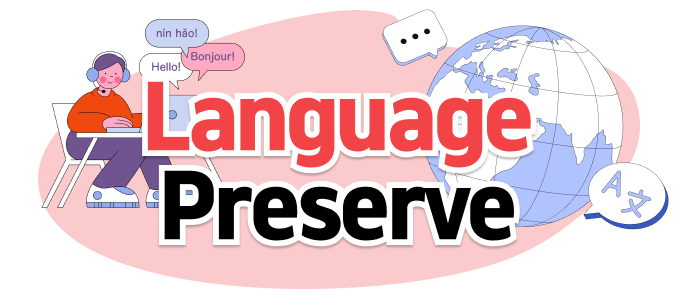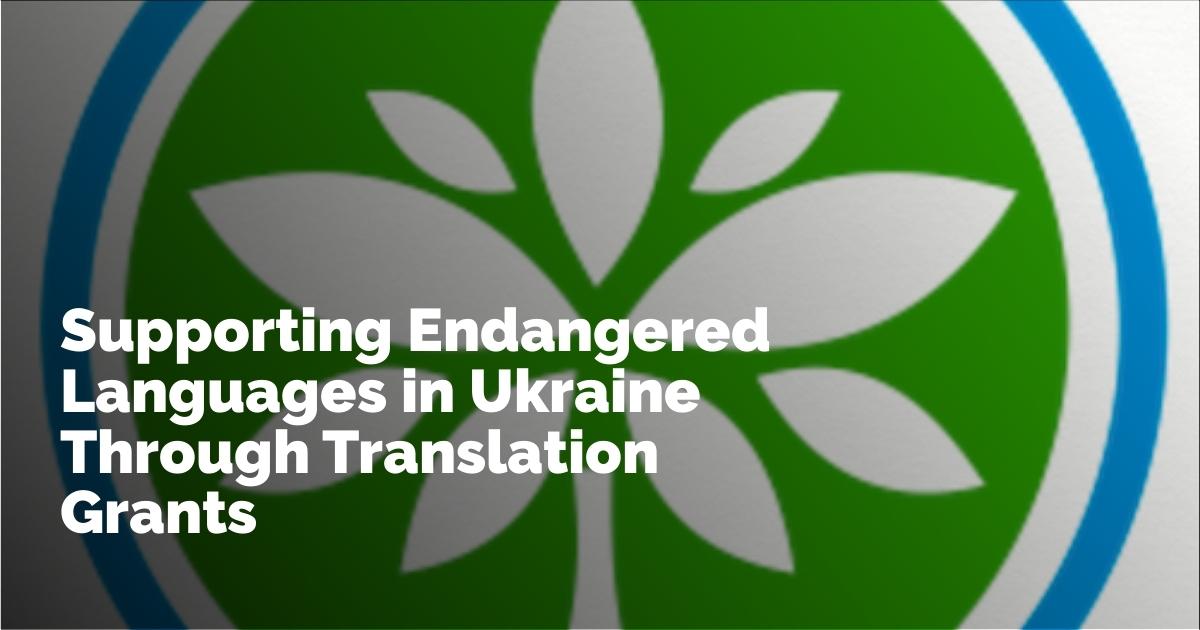Translation Grants to Preserve Endangered Languages in Ukraine
Overview of Translation Grants
In a remarkable initiative aimed at preserving endangered languages, the House of Europe is inviting applications for its Translation Grants. These grants are structured to aid Ukrainian publishers in developing a comprehensive library of literature translated from and into endangered languages, thereby promoting cultural diversity and linguistic preservation.
The grants serve a dual purpose: translating literary works from endangered languages into Ukrainian and vice versa. This effort underscores a commitment to both cultural heritage conservation and the expansion of accessible literature.
Objectives of the Translation Grants
The core aim of the Translation Grants is to equip Ukrainian publishers with the resources necessary to undertake the translation of significant texts. This initiative is designed to cultivate a rich literary archive that captures the essence of endangered languages, ensuring their survival and appreciation in broader contexts.
The program aims to support projects at every key stage, starting from translation through to promotional activities. This holistic approach acknowledges the various facets involved in book production and distribution, encompassing translation, editing, rights acquisition, design, printing, and market promotion.
Funding Details and Opportunities
The Translation Grants offer funding of up to EUR 5,000 per project. This amount is intended to comprehensively cover all expenses associated with book translation and publication. The focus has been placed on languages at risk, which include Belarusian, Gagauz, Yiddish, Karaite, Crimean Tatar, Krymchak, Roma, Rumey, and Urum.
Beyond financial assistance, this initiative is poised to create landmark projects for the Ukrainian market, setting historical precedents and engendering cultural pride. Beneficiaries of the grants will also gain membership in an exclusive alumni community. This membership opens doors to further grants, networking events, and ongoing development opportunities.
Eligible Literary Works
The scope of eligible literary works spans various genres and fields, underlining a diverse approach to literature and its many forms. Works can encompass:
- Fiction: This includes prose, poetry, drama, children’s literature, graphic novels, and comics.
- Professional Literature: Books pertaining to culture and creative industries, education and youth work, social entrepreneurship, and media are also welcomed.
This broad selection criterion ensures a wide array of literary works are considered, enhancing the richness and diversity of the translated library.
Eligibility Criteria for Applicants
To apply for the Translation Grants, applicants must be Ukrainian publishing entities that are legally registered. Eligible types of organizations include limited liability companies, non-governmental organizations, and individual entrepreneurs. This criterion ensures that applicants have the required legal and organizational framework to conduct large-scale translation projects.
Application Requirements
Interested applicants must prepare a comprehensive application package, which involves several key documents:
- Proof of Legal Status: Documentation that confirms the organization's legal standing.
- Translation Contract: A signed agreement with the translator.
- Copyright Agreement: A signed contract with the copyright holder, or a letter of intent to acquire rights.
- Budget Plan: Detailed using the designated budget form.
- Marketing Plan: Prepared using the specified marketing plan form.
- Participant CVs: Resumes for all key project participants.
- Original Literature Sample: A ten-page excerpt from the book intended for translation.
This thorough list of requirements is designed to ensure that each application is complete, detailed, and positioned for success, enhancing the likelihood of funding approval.
Conclusion
The Translation Grants represent a forward-thinking opportunity for Ukrainian publishers to contribute to the conservation and celebration of endangered languages. By supporting these important translation endeavors, the House of Europe is not only fostering literary diversity but also reinforcing the societal value placed on linguistic and cultural heritage.
출처 : Original Source

